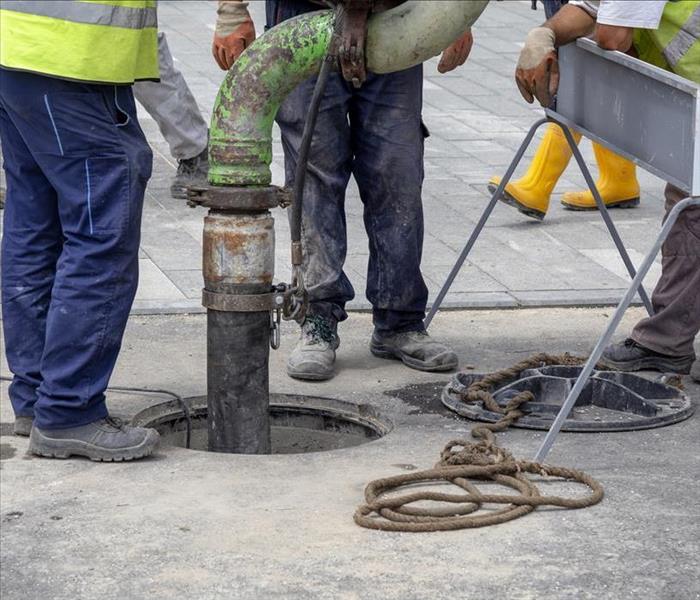All About Sewage Damage and Cleanup
3/29/2021 (Permalink)
Sewer cleanup can be a daunting process. Dealing with the smell, water damage and various piping issues alone can make many homeowners run for cover. Fortunately, you are not alone, and you can prevent a large cleanup project by knowing what causes sewer damage and how it is corrected.
Facts About Sewer Damage and Cleanup
Causes of Sewer Damage
There are a few main things that cause damage to your sewer system. Some of these are:
- Flushing solid objects such as garbage, diapers, wet wipes and toys down the toilet
- Roots growing into the sewer lines
- Age cracking and breaking
- Defects such as collapsing lines and misaligned piping
- Septic or city sewer backup
These apply to both septic systems and city systems, so watch out no matter where you are. Most of these things are preventable with regular sewer maintenance and a bit of knowledge. Snaking your sewer lines, not planting trees over pipes and not putting anything but toilet paper in your lines are tasks you can do independently.
Sewer Cleaning
When things go wrong with your sewer lines, proper sewer cleanup is important. Raw sewage is extremely dangerous. It has bacteria in it that can hurt you if you attempt to clean the sewage yourself without proper precautions. This means using the proper suits, gloves and masks and disposing of the contaminated materials properly.
Sewage cleaning is more than simply dealing with a blocked sink or flooded toilet. You need to wear a protective suit, gloves, masks and eye protection. Sewage contains harmful bacteria and other contaminants that can make you sick. You also have to check the laws to make sure you are following the proper guidelines for disposal.
Calling in Help
With any major sewer issue, you are much better off calling in sewage remediation specialists in Blackfoot, ID. They will know the local laws, what to do and how to clean up the sewage properly.
Sewer cleanup is a long and difficult process if you don't know what you are doing. It is better to prevent damage than have to deal with the aftermath of a sewer line break.



 24/7 Emergency Service
24/7 Emergency Service
